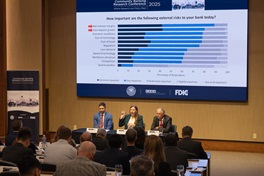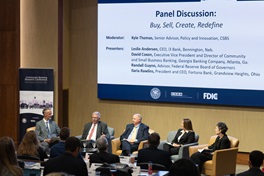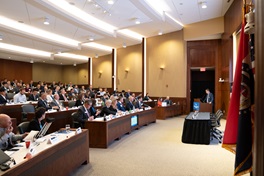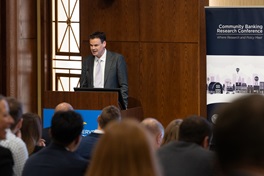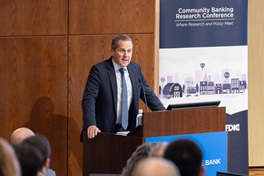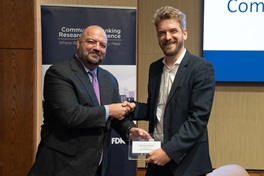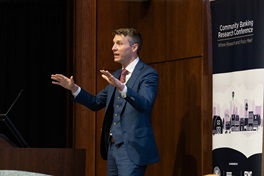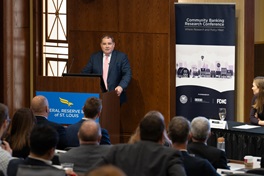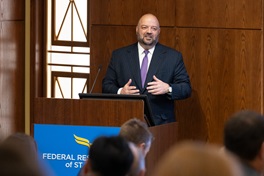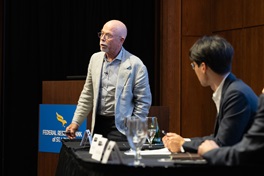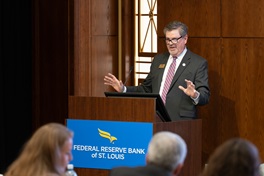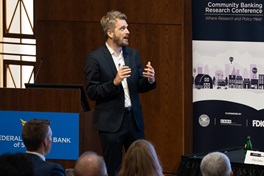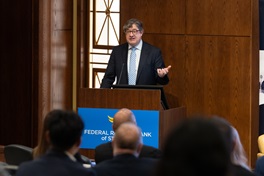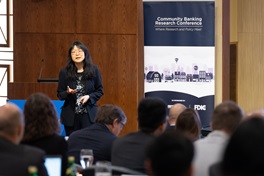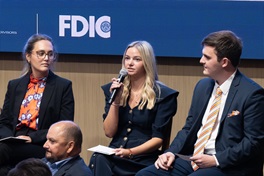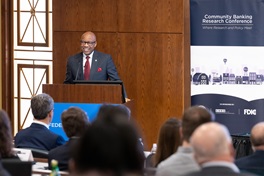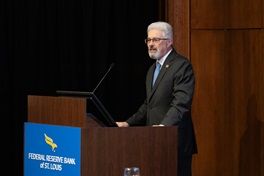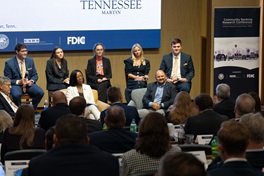
2025 Community Banking Research Conference
Taking place Oct.7-8, the research conference will bring together community bankers, academics, policymakers and bank regulators to discuss the latest research on community banking.
Community Banking Research Conference
The conference presents an innovative approach to the study of community banks. Academics explore issues raised by the industry in a neutral, empirical manner and present their findings at the conference. Community bankers contribute to an annual survey prior to the conference and then participate directly in the conference by serving as keynote speakers and panelists, and by providing feedback to the research presented. For more information, please contact conference@communitybanking.org.
Conference Agenda
Gateway Auditorium, 6th Floor | Federal Reserve Bank of St. Louis
October 7-8, 2025
Download as PDF
- Tuesday, October 7
-
Introduction
-
Welcoming Remarks
Pre-recorded -
2025 CSBS Annual Survey of Community Banks Presentation of Results
-
Morning Keynote
Remarks by CSBS President and CEO Brandon MilhornBrandon Milhorn, Conference of State Bank Supervisors - CSBS -
Break
-
Research Paper Session 1
Deposit Franchise Value and Market Power Community Bank Discussant: Bill Bickle
Community Bank Discussant: Bill Bickle
Chief Risk Officer/Chief Credit Officer, Stockman Financial Corp./Stockman Bank of Montana, Miles City, Mont.
The Decline of Branch BankingRajesh Narayanan, Louisiana State UniversityPoverty Spreads in Deposit MarketsArkodipta Sarkar, National University of SingaporeBanks’ Images: Evidence from Financial AdvertisingXugan Chen, Yale School of ManagementDiscussant SlidesModerator and Discussant Slides -
Lunch
-
Afternoon Plenary
 Andrew Felton
Andrew Felton
Director of the Division of Insurance and Research, Federal Deposit Insurance Corporation
-
Research Paper Session 2
Failed BanksSupervising Failing BanksStephan Luck, Federal Reserve Bank of New YorkWhen Banks Fail: Depositor Attention and the Cost of Funding for SurvivorsBrian Jonghwan Lee, Emory UniversityModerator Slides -
Afternoon Break
-
2025 CSBS Community Bank Case Study Competition Winning Presentation
Student Team - University of Tennessee at MartinAaron Bartholomew, Anna Batte, Makenzi Bouras, Blair James and Hayden Weber
Faculty AdvisorsJohn Clark, Dr. Brittany Cole, and Dr. Nell Gullett, University of Tennessee at Martin
-
Community Banker Keynote
-
Day One Reflections
-
Dinner Reception
- Wednesday, October 8
-
Welcome and Introduction
-
Morning Keynote
-
Research Paper Session 3
Innovation and Technology in Small Business LendingU.S. Banks’ Artificial Intelligence and Small Business Lending: Evidence from the Census Bureau’s Technology SurveyZhenhao (Jeffery) Piao, Trulaske College of Business, University of MissouriRegulation Meets Technology: Evolution of Small Business Lending in Underserved Areas since 2007J. Christina Wang, Federal Reserve Bank of BostonData as Collateral: Open Banking for Small Business LendingTong Yu, Tsinghua University SchoolModerator Slides -
Break
-
Panel Discussion
Buy, Sell, Create, RedefinePanelists -
Presentation of John W Ryan Award
-
Concluding Remarks
-
Poster Papers
Leverage without Risk Weights: A Double-Edged Reform for Community BanksRuinan Liu, McMaster UniversityMission Driven LendersSamuel Rosen, Temple University
Research Papers, Authors and Key Findings
Research Paper Session 1
Deposit Franchise Value and Market Power
The Decline of Branch Banking
Author: Rajesh Narayanan, Louisiana State University
Key Findings: The authors examine the drivers of bank branch opening and closure decisions during the industry restructuring period from 2001 to 2024. They show that measures of local financial sophistication strongly predict both outcomes, as depositors in these areas exhibit greater interest-rate sensitivity, and, as result, lower deposit franchise value. They find that incumbents retain branches where depositors are less sensitive to rates because they can attract deposit spreads; entrants avoid such markets because sticky customers are difficult to attract. The pandemic accelerated closures by increasing digital reliance.
Poverty Spreads in Deposit Markets
Authors: Arkodipta Sarkar, National University of Singapore; Emilio Bisetti, Hong Kong University of Science and Technology
Key Findings: The authors document significant deposit interest rate differentials along the income distribution; moving from the bottom to the top income decile increases deposit rates by 55% of the sample median rate. They find these spreads persist independent of banking competition, and instead appear to arise from banks internalizing households’ participation in nondeposit markets. Deposit quantities are more volatile and sensitive to the performance of nondeposit assets in high-income than in low-income areas. The results suggest potentially large price differences in more complex products such as pension plans and credit cards.
Banks’ Images: Evidence from Financial Advertising
Authors: Xugan Chen, Yale School of Management ; Allen Hu, University of British Columbia
Key Findings: The authors conduct the first systematic study of financial advertising, examining how banks strategically develop their brand images, and how these image-building efforts influence both franchise value and the transmission of monetary policy. They find substantial heterogeneity in advertising strategies across banks, reflecting differences in market share, productivity, deposit rates, service quality, and customer demographics. These strategic choices amplify differences in market power and financial stability across institutions, potentially shaping how banks respond to macroeconomic shocks and participate in the transmission of monetary policy.
Discussant Slides
Moderator and Discussant Slides
Research Paper Session 2
Failed Banks
Supervising Failing Banks
Author: Stephan Luck, Federal Reserve Bank of New York
Key Findings: The authors examine the role of supervision in failing banks to understand how it contributes to financial stability. They document that supervisors tend to be well informed about failing banks’ financial trouble well ahead of failure; bank closures are almost always a supervisory decision and are conducted in an orderly fashion with low losses for uninsured depositors. They find that heightened supervisory scrutiny increases the accuracy of financial reporting, the frequency of public enforcement actions, and the likelihood of bank closures. Supervision also affects bank capitalization and the size of surviving banks.
When Banks Fail: Depositor Attention and the Cost of Funding for Survivors
Author: Brian Jonghwan Lee, Emory University
Key Findings: The authors document a novel channel through which bank failures affect the economy by increasing the funding costs of surviving banks. They find that competitor banks significantly raise deposit rates following a nearby bank failure, even when controlling for local economic conditions and bank fundamentals. The effect is persistent, lasting up to three years, and is stronger following highly publicized failures. Their findings highlight how banking crises propagate indirectly by making funding more expensive, even if remaining banks are safe, thereby constraining credit supply and amplifying economic downturns. Depositors play a central role in this propagation mechanism.
Bad Bank, Bad Luck? Evidence from 1 Million Firm-Bank Relationships
Author: Yannick Schindler, Oxford
Key Findings: The authors examine the effects of bank failure on firm performance. Their headline finding is that firms with pre-existing relationships to banks that later failed typically experience large and lasting negative consequences, including lower employment growth and firm failure. These impacts of bank failure on firm performance persist for more than 10 years, are present for bank failures both during and outside the U.S. financial crisis period and are strongest for smaller enterprises. Their findings suggest that bank failures exert a substantially larger influence on the real economy than previously recognized, possibly requiring a re-evaluation of current regulatory approaches to managing such events.
Moderator Slides
Research Paper Session 3
Innovation and Technology in Small Business Lending
U.S. Banks’ Artificial Intelligence and Small Business Lending: Evidence from the Census Bureau’s Technology Survey
Authors: Zhenhao (Jeffery) Piao, Trulaske College of Business, University of Missouri; K. Philip Wang, University of Florida
Key Findings: The authors examine the use of artificial intelligence (AI) by U.S. banks and its effect on their small business lending. They find that banks with greater AI usage lend significantly more to distant borrowers, about whom they have less soft information. They show that AI’s effect on distant lending is more pronounced in poorer areas and areas with less bank presence. They also find that banks that are heavy AI users experience lower default rates among distant borrowers and charge these borrowers lower interest rates, suggesting that AI helps banks identify creditworthy borrowers at loan origination. Their evidence suggests that AI helps banks reduce information asymmetry with borrowers.
Regulation Meets Technology: Evolution of Small Business Lending in Underserved Areas Since 2007
Author: J. Christina Wang, Federal Reserve Bank of Boston
Key Findings: The authors study how lending to small businesses has evolved since just before the global financial crisis (GFC), paying special attention to underserved borrowers and to nonbank lenders, whose technological advantages are amplified by the enhanced regulation of the largest banks following the GFC. They document that new lenders, led by fintechs, have gained substantial market share in small business lending since 2007 at the expense of banks, especially the largest banks. They also show that prior relationships with community banks enable small businesses to receive Paycheck Protection Program loans notably sooner than prior relationships with any other types of lenders, especially fintechs.
Data as Collateral: Open Banking for Small Business Lending
Author: Tong Yu, Tsinghua University School
Key Findings:
The author examines the impact of open banking on loan collateralization; collateral restraints can be a major impediment to obtaining business loans. Open banking data serves as a form of “digital collateral” because it can mitigate both ex ante and ex post asymmetric information problems in credit markets. The author finds that open banking eases the pledge of assets such as accounts receivable and inventory; firms eligible to share data are more likely to pledge such assets as collateral, thereby improving their access to credit. Firms facing greater informational asymmetries—such as young firms and firms without prior bank loans—are more significantly affected by open banking.
Moderator Slides
Speakers and Panelists
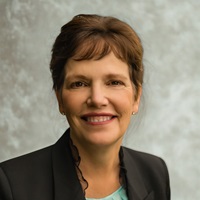
Leslie Andersen, Chief Executive Officer of i3 Bank, is a fourth-generation member of the founding family. She has over thirty years of banking experience and a proven track record of extensive leadership within the industry overall. Throughout her career, Leslie has served on many Industry Boards including Chairman of the American Bankers Association’s Government Relations Council, member of the Federal Advisory Council to the Board of Governors of the Federal Reserve, Banc Alliance Board of Directors, and Corporation for American Banking Advisory Board.
Ms. Andersen currently serves as a member of the Blue Cross Blue Shield of Nebraska Board of Directors, a Governor of the Knights of Ak-Sar-Ben Foundation, a trustee for the Nebraska Game and Parks Foundation, a member of the One Nebraska Board of Directors, a trustee for the Peter Kiewit Foundation, a member of the President’s Advisory Council for the University of Nebraska and The State of Nebraska Economic Forecasting Board.
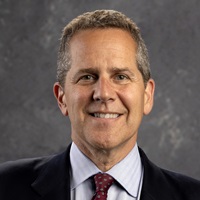
Michael S. Barr took office as a member of the Board of Governors of the Federal Reserve System on July 19, 2022, for an unexpired term ending January 31, 2032. Mr. Barr served as the Vice Chair for Supervision of the Board of Governors of the Federal Reserve System from July 19, 2022, to February 28, 2025.
Prior to his appointment to the Board, Mr. Barr was the Joan and Sanford Weill Dean of the Gerald R. Ford School of Public Policy, the Frank Murphy Collegiate Professor of Public Policy, the Roy F. and Jean Humphrey Proffitt Professor of Law at the University of Michigan Law School, and the founder and faculty director of the University of Michigan's Center on Finance, Law & Policy. At the University of Michigan Law School, Mr. Barr taught financial regulation and international finance and co-founded the International Transactions Clinic and the Detroit Neighborhood Entrepreneurs Project.
Mr. Barr served as the U.S. Department of the Treasury's assistant secretary for financial institutions, 2009-2010. Under President William J. Clinton, he served as the Treasury Secretary's special assistant, as deputy assistant secretary of the Treasury, as special adviser to the President, and as a special adviser and counselor on the policy planning staff at the U.S. Department of State.
Additionally, Mr. Barr served as a law clerk to U.S. Supreme Court Justice David H. Souter during October Term 1993, and previously to the Honorable Pierre N. Leval, then of the Southern District of New York.
Mr. Barr received a BA in history from Yale University, an MPhil in international relations from Oxford University, and a JD from Yale Law School.
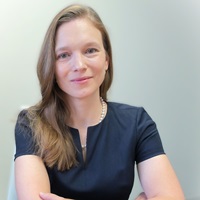
Dr. Elizabeth Berger is an Assistant Professor of Finance at the Bauer College of Business of the University of Houston. Her research focuses on financial institutions, with a particular emphasis on the role of banking in new business formation, job creation, and economic growth. In addition, she studies how firms utilize banks to enhance profitability and investment efficiency, and how households use banks to build wealth.
Her research has appeared in the Journal of Finance, the Journal of Financial and Quantitative Analysis, and the Journal of Financial Intermediation. Her findings have also been published as feature articles for the Texas Bankers Association.
She earned her Ph.D. in finance from Rice University and holds dual undergraduate degrees in Economics and Vocal Performance from Tulane University.
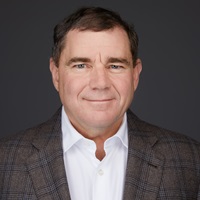
Bill Bickle is the Chief Risk Officer/Chief Credit Officer for Stockman Financial Corp./Stockman Bank of Montana. He was raised on the family ranch at Ismay, Montana. He graduated from Montana State University with degrees in Business Finance and Economics and subsequently received a professional certificate from the Pacific Coast Banking School at the University of Washington.
Bill joined Stockman Bank in 1987 as corporate auditor and over his career with the organization has held a wide range of management responsibilities in the investment, operational and lending divisions of the bank. He is a past chairman and board member of the Montana Bankers Association and is currently a member of the American Bankers Association Government Relations Council.
Stockman Bank of Montana is a state-wide banking organization headquartered in Miles City, Montana.
It is Montana’s largest, family-owned, community bank, with convenient full-service locations across the state. Founded in 1953, Stockman remains uniquely focused on Montana, with comprehensive banking products and services, along with state-of-the-art online and mobile banking, wealth management and insurance services.

Michelle W. Bowman took office as the Vice Chair for Supervision of the Board of Governors of the Federal Reserve System on June 9, 2025, for a four-year term. Ms. Bowman has served as a member of the Board of Governors of the Federal Reserve System since taking office on November 26, 2018, to fill an unexpired term ending January 31, 2020. She was reappointed to the Board on January 23, 2020, and sworn in on January 30, 2020, for a term ending January 31, 2034.
Prior to her appointment to the Board, Ms. Bowman served as the state bank commissioner of Kansas from January 2017 to November 2018. She also served as vice president of Farmers & Drovers Bank in Kansas from 2010 to 2017. In addition to her experience in the banking industry, Ms. Bowman worked in Washington, D.C. for Senator Bob Dole of Kansas from 1995 to 1996 and served as a counsel to the U.S. House Committee on Transportation and Infrastructure and the Committee on Government Reform and Oversight between 1997 and 2002. In 2002, Ms. Bowman became director of congressional and intergovernmental affairs at the Federal Emergency Management Agency. From 2003 to 2004, she served as Deputy Assistant Secretary and policy advisor to Homeland Security Secretary Tom Ridge.
Following her time in Washington, D.C., Ms. Bowman led a government and public affairs consultancy based in London before returning to Kansas in 2010. Ms. Bowman received a BS in advertising and journalism from the University of Kansas and a JD from the Washburn University School of Law. She is a member of the New York Bar. Ms. Bowman is married with two children.

Xugan Chen is a Ph.D. student in Financial Economics at the Yale School of Management, Yale University. His research focuses on innovation, corporate finance, entrepreneurship, and big data in finance. Prior to his doctoral studies, he was a Pre-Doctoral Fellow at the Yale Economics / Tobin Center and the Yale School of Management.
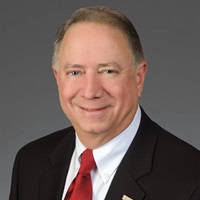
David R. Coxon, Director of Community and Small Business Banking for Georgia Banking Company. Prior to Georgia Banking David was President and CEO of Georgia Primary Bank in Atlanta. Georgia Primary Bank and Georgia Banking Company merged in February of 2025. The combined organizations is 2.6 billion in Assets centered in the greater Atlanta, Georgia market.
A lifelong Georgia banker with over five decades of banking experience. His banking experience spans a wide range of disciplines in commercial and community banking. Over the past thirty years he has held executive management positions with various institutions.David holds a BBA degree in accounting from Columbus State University and a master’s in organizational leadership and management from Mercer University.
From 1997 to 2004 he was an Adjunct Professor with Mercer University.
David is a member of the Georgia Bankers, Community Bankers, and the Risk Management Associations (ProSight). David is a lifetime member of the Risk Management Association having chaired their Community Bank Council and was national chair for the Risk Management Association in 2010/11. He is a past instructor for the Georgia and South Carolina Banking Schools.
He has served on various boards such as America Red Cross, American Heart Association, United Way, Chamber of Commerce, International Association of Administrative Professionals, and the Executive Council for Boy Scout of America.

Jim Edwards is Chief Executive Officer of United Bank, a closely held community bank serving nine suburban and rural counties in central Georgia. Since becoming CEO in 2002, he has led the bank’s growth to more than $2.2 billion in assets, making United Bank the sixth largest bank chartered in Georgia and one of the largest community banks that is 100% employee-owned in the country.
Jim is a past Chairman of the American Bankers Association, the largest bank trade association in the U.S., representing banks of all sizes nationwide. Currently, he serves as Vice Chairman of American Bankers Mutual Insurance Company. He has also chaired the ABA’s Community Bankers Council, the Georgia Bankers Association, and served on the FDIC’s Community Bank Advisory Committee.
Actively engaged in community and civic leadership, Jim currently serves as Vice Chairman of Upson Regional Medical Center and has chaired multiple local and regional boards. He is a graduate of Emory University, the University of Virginia Darden School of Business, and the Stonier Graduate School of Banking.
A native of Barnesville, Georgia, Jim and his wife, Dr. Laura Edwards, live in Forsyth and have three adult children.

Andrew (Andy) Felton is the Director of the Division of Insurance and Research at the Federal Deposit Insurance Corporation, in which role he oversees management of the Deposit Insurance Fund, research, economic analysis, and international coordination. He previously served as the Deputy Director for Systemic Risk in the FDIC’s Division of Complex Institution Supervision & Resolution. Andy joined the FDIC in 2005 and has also worked at the Federal Reserve Board of Governors. Andy has a B.A. in English from Carleton College, an M.A. in Economics from Tufts University, and has completed all coursework for a Ph.D. in Public Policy from the University of Maryland.
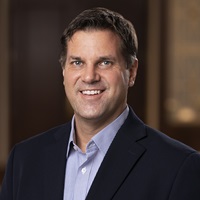
Jim Fuchs is a vice president at the Federal Reserve Bank of St. Louis, overseeing the operations of the bank’s Applications, Credit, Reserves, Statistics, Business Line Training Services, Quality Assurance, Digital Transformation Consulting, Supervision Policy Research and Analysis, and Supervision Outreach units. Fuchs also oversees a wide range of national outreach programs developed by the St. Louis Fed for community bankers and is a member of several Federal Reserve System workgroups focused on community banking issues. Fuchs also chairs the organizing committee the Federal Reserve/ Conference of State Bank Supervisors’/FDIC annual Community Banking Research Conference. Before joining the St. Louis Fed, Fuchs served as a banking policy adviser and directed financial communications for New York State Comptroller Thomas DiNapoli. Earlier, he was chief of staff to former New York State Banking Superintendent Diana Taylor and served as an advisor to New York City Mayor Michael Bloomberg. He is a former captain in the United States Air Force serving during Operations Desert Storm, Enduring Freedom, and Iraqi Freedom. Fuchs received his MBA from the University of Missouri-St. Louis and his Bachelor of Science from the U.S. Air Force Academy. He also earned a graduate certificate in communications from the University of Oklahoma and a teaching certificate in secondary mathematics from City College in New York. In addition, Fuchs is a graduate of the Department of Defense Information School and the American Academy of Dramatic Arts. He is also a graduate of the Stonier Graduate School of Banking at the University of Pennsylvania’s Wharton School of Business.
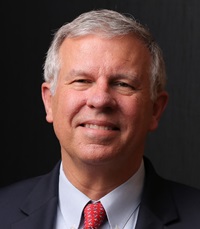
Randall Guynn is senior advisor to Federal Reserve Vice Chair for Supervision Michelle Bowman.
Prior to joining the Federal Reserve, he was a lawyer for 38 years at Davis Polk & Wardwell. He became a partner in 1993 and served as head of the firm’s Financial Institutions Group from 1994-2022 and senior chairman from 2023 until he joined the Federal Reserve in May 2025. He was widely regarded as one of the nation’s top bank M&A lawyers and a thought leader in financial regulation for more than two decades. He was ranked as a star lawyer in bank regulation and band 1 in bank M&A by Chambers USA and Chambers Global. During his career, he was named the top banking lawyer in the world by Who’s Who and one of the most innovative lawyers by the Financial Times. He is the author of several books and numerous articles and other publications.
Prior to joining Davis Polk, he was a law clerk for Justice William H. Rehnquist of the Supreme Court of the United States and to the Honorable J. Clifford Wallace of the U.S. Court of Appeals for the Ninth Circuit.
He received his J.D. from the University of Virginia School of law in 1984 and a B.A. in economics from Brigham Young University in1981.
He and his wife, Robin, are the parents of seven children.
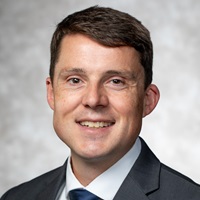
John Hackney is an Assistant Professor of Finance at the Walton College of Business, University of Arkansas. He previously held the position of Assistant Professor of Finance at the Darla Moore School of Business, University of South Carolina. He has served on the program committee for the Community Banking Research Conference, and received the Most Important Contribution to Banking Policy Award at the 2019 Conference. His research focuses on entrepreneurship, FinTech, household finance, empirical corporate finance, and banking. John has a BA in Economics and Finance from Gonzaga University, and a MS and PhD in Finance and Business Economics from the University of Washington.
 Ken Heinecke is senior vice president of Supervision, Regulation, and Credit. In this role he leads the regional supervision and regulation of bank holding companies and state member banks in the Ninth District.
Ken Heinecke is senior vice president of Supervision, Regulation, and Credit. In this role he leads the regional supervision and regulation of bank holding companies and state member banks in the Ninth District.Previously, Ken served as the vice president overseeing the safety and soundness function and as a senior leader of U.S. stress testing. He has experience managing risk across all sizes of banks and has served regularly on the committee that prepares the Bank president for Federal Open Market Committee meetings.
Before rejoining the Bank in 2011, Ken held capital markets positions in the private sector, including director of research for Kenwood Capital Management in Minneapolis. Early in his career, Ken was a member of the Financial Markets and Institutions Group in the research department at the Federal Reserve Bank of Kansas City.
Ken has a B.A. in economics from Luther College and an M.A. in economics from the University of Iowa. He also has chartered financial analyst and chartered alternative investment analyst designations.
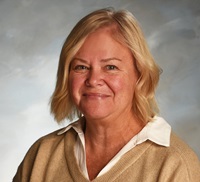
On August 18, 2025, Kara Hunter began serving as Colorado’s State Bank Commissioner, responsible for the regulation of state-chartered commercial banks, trust companies, licensed money transmitters, and the Public Deposit Protection Act under the Colorado State Banking Board’s policy and rule-making authority.
Ms. Hunter has been with the Colorado Division of Banking since 1998, serving as Director of Operations from 2001 and Deputy State Bank Commissioner from January 2020. Throughout her tenure, she has provided strategic and operational leadership, managing regulatory programs, budget oversight, and staff supervision, while acting as a key advisor on complex regulatory issues and coordinating with federal agencies.
Before joining the Division, she was a senior examiner at the Federal Reserve Bank of Kansas City - Denver Branch, where she began her career as a bank examiner trainee in 1989.
She holds a Bachelor of Arts in Business Administration and Political Science from Augustana College – Sioux Falls, South Dakota.
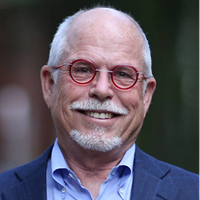
Christopher M. James is the William H. Dial/SunTrust Eminent Scholar in Finance and Economics at the University of Florida. He has also held academic positions at the University of Michigan, the University of Oregon, and Cambridge University. In addition, he has served as the senior economic advisor to the Comptroller of the Currency and as a consultant and visiting scholar at the FDIC, Federal Reserve Board of Governors and the San Fransico Federal Reserve Bank. He received a Ph.D. in Economics and an MBA in Finance from the University of Michigan.
His research has been published extensively in academic and professional journals in the areas of banking, corporate finance and applied econometrics. He has served as an editor or associate editor of several journals, including, Journal of Finance, Journal of Financial Economics, Journal of Financial Intermediation, Journal of Banking and Finance, Journal of Financial and Quantitative Analysis and Journal of Financial Services Research. Professor James’s current research focuses on the impact of technological change on bank infrastructure, and innovations in bank lending.
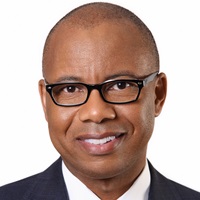
Kenneth Kelly serves as Chairman and CEO of First Independence Bank, a minority depository institution, based in Detroit, Michigan. He is a respected leader in the banking community, currently serving as Chairman of the National Bankers Association. In 2018, he was named to the Federal Reserve Bank’s Seventh District Community Depository Institutions Advisory Council (CDIAC). Kenneth was also selected to become a member of the Federal Deposit Insurance Corporation Chairman’s Advisory Committee on Community Banking which is charged with providing advice and recommendations to the FDIC on a broad range of community banking policy and regulatory matters. In October 2020, he is expected to be seated on the American Bankers Association Board of Directors. Kenneth has testified as an expert witness before the U.S. Congressional House Financial Services subcommittee on consumer protection and financial institutions and has provided input to the full committee of the House Financial Services during its COVID19 listening session. Also, Kenneth provided input and advice to the Secretary of Treasury and White House Staff during COVID19 on the state of minority banks.
Kenneth’s leadership in various organizations has culminated in him being selected as the chairperson of the Auburn University Engineering Alumni Council. In this role, Kenneth works with a successful group of alumni including many CEO’s to assist the dean of the college with research and development, fundraising, academic achievement and overall guidance to the college to become the best student-centered program in America. In 2019, the dedication of the new Brown Kopel Engineering Student Achievement Center included the naming of the Kenneth Kelly Engineering Academic Excellence Program Reception Area.
Prior to banking, Kenneth enjoyed a 27 year career as an electric utility business leader in numerous roles within Southern Company. His last role entailed negotiating acquisitions of large renewable solar projects valued at $3.4 billion in partnership value. In 2018, Kenneth was inducted as the 137th Distinguished Auburn Engineer. On February 22nd, 2020 he was inducted into the State of Alabama Engineering Hall of Fame.
Kenneth grew up in Eufaula, Alabama and received an electrical engineering degree from Auburn University and completed the executive MBA program at the University of Alabama.
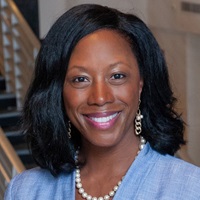
Rhoshunda Kelly was appointed by Governor Tate Reeves to serve as the Commissioner of the Department of Banking and Consumer Finance on March 22, 2021. Kelly has over 20 years of experience as a regulator, beginning her career with the Department as a bank examiner trainee in 2001. She was a field examiner from 2001 to 2011 and became a review examiner in 2012. Kelly was promoted to the Director of Bank Supervision in 2013 and appointed Deputy Commissioner in 2014. As Deputy Commissioner, Kelly managed the banking, mortgage, consumer finance, administration, legal and information technology divisions. She also ensured effective coordination between the state and federal regulators and fostered engagement with regulated industries.
As Commissioner, Kelly ensures effective agency operations and oversees $154 billion in state-chartered banking assets. She also ensures the licensure and supervision of over 8,000 consumer finance and mortgage licensees, which represent 11 financial industries.
Kelly received her undergraduate degree in business with a concentration in Banking and Finance from Mississippi State University. She is a graduate of the Graduate School of Banking at Louisiana State University where she is a past instructor. Kelly is also an honor graduate of the American Bankers Association Graduate Trust School. She serves as a member of the Mississippi Certified Public Manager Advisory Board. Kelly is Vice-Chair of Mississippi State University Finance and Economics Advisory Board and was named a 2019 Leader in Finance by Mississippi Business Journal.
Kelly is active in the Conference of State Bank Supervisors (CSBS) and was recently elected as the Chair Elect of the Executive Committee and Board of Directors.

Brian Jonghwan Lee is an Assistant Professor of Finance at Emory University Goizueta Business School. He completed his PhD in Finance at Columbia Business School in 2024, and his research areas include household finance and corporate finance. Prior to his PhD, he received his undergraduate degree in Economics and Statistics from Carnegie Mellon University and subsequently held research positions at the Federal Reserve Bank of Minneapolis and the University of Chicago Booth School of Business.
 Stephan Luck is a financial research advisor in the Research Group at the Federal Reserve Bank of New York. Stephan is interested in finance, macroeconomics, and economic history. His articles have been published in leading academic journals, including the American Economic Review, Journal of Political Economy, Quarterly Journal of Economics, Journal of Finance, Journal of Financial Economics, and Review of Financial Studies. He is a recipient of the 2025 Michael J. Brennan Award. Stephan holds a Ph.D. in economics from University of Bonn in Germany.
Stephan Luck is a financial research advisor in the Research Group at the Federal Reserve Bank of New York. Stephan is interested in finance, macroeconomics, and economic history. His articles have been published in leading academic journals, including the American Economic Review, Journal of Political Economy, Quarterly Journal of Economics, Journal of Finance, Journal of Financial Economics, and Review of Financial Studies. He is a recipient of the 2025 Michael J. Brennan Award. Stephan holds a Ph.D. in economics from University of Bonn in Germany.

Brandon Milhorn is the president and chief executive officer of the Conference of State Bank Supervisors (CSBS), the national association representing state financial regulators and a champion for the system of state financial supervision. He was appointed by the Board of Directors in December 2023. CSBS supports state regulators by advocating for responsible policy; engaging with federal regulatory counterparts, the Administration, and Congress; providing research on economic matters, industry trends, and best practices; conducting training and professional development; and developing transformative supervisory technology, such as the Nationwide Multistate Licensing System and Registry.
Milhorn previously held leadership roles at the Federal Deposit Insurance Corporation (FDIC), serving as deputy to Vice Chairman Travis Hill and as chief of staff and deputy to Chairman Jelena McWilliams. Before the FDIC, he spent seven years in the private sector with Raytheon Corporation. Before Raytheon, he held numerous positions over a decade of public service, including as staff director and chief counsel for the Senate Committee on Homeland Security and Governmental Affairs, general counsel for the Senate Select Committee on Intelligence, and as an attorney at the CIA. He began his career with two federal clerkships.
Milhorn holds a B.S. in economics from East Tennessee State University and a J.D. from Cornell Law School.

Alberto G. Musalem is the president and CEO of the Federal Reserve Bank of St. Louis. In this role, he participates on the Federal Reserve’s Federal Open Market Committee, or FOMC,
which meets at least eight times each year to set the direction of U.S. monetary policy. He also oversees the activities of the Eighth Federal Reserve District at its St. Louis headquarters and branches in Little Rock, Ark., Louisville, Ky., and Memphis, Tenn. These activities include economic research, fiscal agent responsibilities for the U.S. Treasury, supervision of District financial institutions, community development, and regional payments, transparency, technology and support functions. As the St. Louis Fed president, Musalem makes public outreach a priority, talking regularly with people and communities across the Eighth District about the economy. Engaging with Main Street provides him with important insights as he represents the District at the monetary policy table. Musalem is an economist and executive with nearly three decades of prior public and private sector experience in economic policy, finance and markets. He earned a Ph.D. in economics from the University of Pennsylvania. He also holds master’s and bachelor’s degrees in economics from the London School of Economics and Political Science.

Dr. Narayanan’s academic research focuses broadly on issues related to banking and financial markets. His research has been published articles in leading academic journals including the Journal of Financial Economics, Review of Financial Studies and Journal of Money Credit and Banking. He has delivered lectures to and conducted seminars on various topics for executives and technocrats in Brazil, China, the Czech Republic, India, Malaysia and South Africa. His interviews and commentary have been featured in national media outlets such as the Wall Street Journal, CNN/Money, Bloomberg, Fortune as well as in regional and local media outlets such the Times Picayune, The Advocate, Baton Rouge Business report, WBRZ-TV, and WWL-Radio.
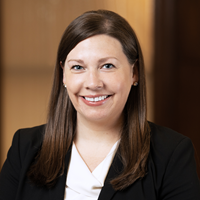
Kathleen Navin is a senior business economist at the Federal Reserve Bank of St. Louis in the division of Supervision. Navin’s responsibilities pertain to analyzing and presenting on economic and banking conditions in the United States and regionally. Prior to joining the Federal Reserve Bank of St. Louis, Navin held the position of Economics Executive Director in U.S. Economics at S&P Global Market Intelligence, joining the firm through the acquisition of Macroeconomic Advisers. In this role, she produced analysis on economic data and forecasts related to the US economic outlook and developed alternative macroeconomic scenarios for use in bank stress testing. She was previously a research associate at the Federal Reserve Bank of Kansas City in the division of Macroeconomics and Monetary Policy. Navin graduated with her Bachelor of Science in Economics and her Master of Arts in Economics from the University of Missouri, Columbia, Missouri. Navin is an active member of the National Association for Business Economics (NABE), currently serving a three-year term as a member of its board of directors. She became a member of NABE’s inaugural class of Certified Business Economists in 2015.
 Zhenhao (Jeffery) Piao is an Assistant Professor of Accountancy and the CBIZ MHM Faculty Scholar at the Trulaske College of Business, University of Missouri. His research examines information dissemination mechanisms in capital markets, with a particular focus on corporate disclosure and private interactions among market participants. His work has been published in Review of Accounting Studies and Contemporary Accounting Research. At Missouri, Piao teaches an intermediate-level financial accounting course for undergraduate students. He earned his Ph.D. in Accounting from the University of Florida and both his Bachelor’s and Master’s degrees in Accounting from the University of Illinois at Urbana–Champaign.
Zhenhao (Jeffery) Piao is an Assistant Professor of Accountancy and the CBIZ MHM Faculty Scholar at the Trulaske College of Business, University of Missouri. His research examines information dissemination mechanisms in capital markets, with a particular focus on corporate disclosure and private interactions among market participants. His work has been published in Review of Accounting Studies and Contemporary Accounting Research. At Missouri, Piao teaches an intermediate-level financial accounting course for undergraduate students. He earned his Ph.D. in Accounting from the University of Florida and both his Bachelor’s and Master’s degrees in Accounting from the University of Illinois at Urbana–Champaign.

President and CEO Alexander Price is responsible for the oversight of all seven branches of the bank, and serves as a director for Citizens State Bank and CSBO Holdings, Inc.
Alexander has spent his career in technology. He started on the government side as the IT policy advisor and speechwriter for Colorado Gov. John Hickenlooper. Alexander then moved to the business development side, working for companies in application platforms and manufacturing and restaurant automation. He has a BA in international relations and economics from Claremont McKenna College and an MBA from Northwestern University.
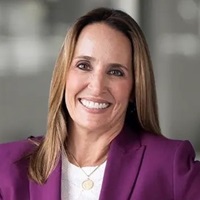
Ilaria Rawlins is the CEO of Fortuna Bank, a newly launched de novo bank in Columbus, Ohio and one of only 15 women-owned banks in the nation. She brings more than 30 years of experience in banking, with a career deeply rooted in retail leadership and prior de novo expertise. Known for building high-performing teams, driving strategic growth, and forging strong community partnerships, she has consistently championed inclusivity and innovation in financial services. Under her leadership, Fortuna Bank was founded with a mission to expand access to capital, particularly for women and small business owners, while making a meaningful impact in the community it serves. Ilaria is a graduate of Denison University with a Bachelor of Arts.
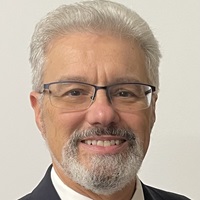
Antonio Salazar is the commissioner of the Maryland Department Financial Regulation. Commissioner Salazar is an attorney with a distinguished 39-year career in the banking and financial services sector. He is currently serving his eighth year as Maryland’s Commissioner of Financial Regulation. Under his leadership, Maryland’s consumer financial protection agency oversees the chartering, licensing, and supervision of all state-chartered depository institutions and financial service providers. As Maryland’s financial regulator, Commissioner Salazar is an active member of CSBS, where he serves as Chair of the Board of Directors and is a member of the Non-Depository Supervisory Committee. He maintains regular contact with federal regulatory authorities, other state bank regulators, and state and federal legislators. Committed to strengthening community banks and the dual banking system, he has led his office in early adoption of the State Examination System, sponsored various financial service model laws such as the Model Money Transmission Act, and achieved accreditation as a banking, mortgage, and money service business regulatory agency. His office has also championed the Maryland Access to Banking Act, incentivizing community bank investments in underbanked communities. In addition to his regulatory duties, Commissioner Salazar is a member of the Maryland Commission on Financial Education and Capability. He is honored to be a part of the AIR TechSprint judging team.
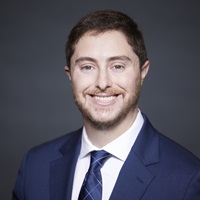
Joey Samowitz is senior director of policy development with the Conference of State Bank Supervisors (CSBS). At CSBS, he leads a team of analysts in crafting policy positions and managing workflows to inform action by state regulators. He provides thought leadership in several interagency groups and formerly represented the states on the FSOC digital asset working group. He is also the staff lead on the CSBS Bankers Advisory Board and provides key research on complex topics like digital assets, and regulatory proposals. He received his bachelor’s degree from the University of Maryland and is a graduate of the Graduate School of Banking at Colorado. Joey is currently studying for his MBA at the University of Nebraska-Lincoln. Joey joined CSBS in 2017.

Arkodipta Sarkar works as an Assistant Professor of Finance at the National University of Singapore. Arko's research agenda examines how political structures and institutional frameworks shape financial markets, with a particular focus on banking practices and their role in perpetuating or mitigating economic inequality. He investigates the mechanisms through which political representation, social biases, and regulatory design affect access to financial services, exploring how banking institutions serve as critical intermediaries that can either democratize or restrict financial opportunities. His research has been published in the Journal of Political Economy and the Journal of Finance and Quantitative Analysis. Before joining NUS, Arko worked as an Assistant Professor of finance at the Hong Kong University of Science and Technology from 2020-2022. Arko received his PhD in finance from the London Business School.

Yannick Schindler is a senior research economist at the Ellison Institute of Technology in Oxford, where he studies topics at the intersection of macroeconomics, finance and the economics of longevity. His research examines how demographic change interacts with banking sector dynamics, credit markets and long-run growth, combining theory with novel data and empirical methods. Alongside his academic work, Schindler engages closely with policy institutions. He is seconded part-time[VB1] to the U.K. Office for National Statistics, contributing to projects that model the macroeconomic case for health investments. He has also played a role in developing the U.K. Health and Growth workshop series, fostering dialogue between researchers and policymakers on the economic impacts of population health. Schindler has held research positions at Stanford University, London Business School, and Princeton University, and has worked in expert roles for the European Central Bank and Boston Consulting Group. He earned his Ph.D. and MRes in economics from the London School of Economics and Political Science, and an M.Sc. in economics from University College London.
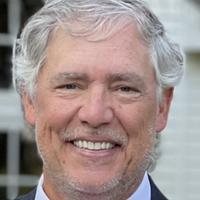
Thomas Siems is the chief economist with the Conference of State Bank Supervisors (CSBS). He joined CSBS in 2019 after serving 34 years at the Federal Reserve Bank of Dallas and more than 20-year teaching at Southern Methodist University in Dallas. Siems earned a Bachelor of Science in industrial and operations engineering from the University of Michigan and his Master of Science and Ph.D. degrees in operations research from Southern Methodist University. Siems is also a graduate of the Graduate School of Banking at Colorado and has published more than 75 articles in academic, Federal Reserve and referred journals. He delivered a 2015 TEDxSMU Talk, “The Wealth of Innovations,” and has authored five children’s picture books, including “The Dangerous Pet,” which poetically helps readers understand the dangers of debt.

Kyle Thomas advances and strengthens state financial regulation through his role as Senior Advisor for Policy and Innovation at the Conference of State Bank Supervisors. In this role, he provides thought leadership for the organization and its members on financial regulatory policy and the growing role of innovative technologies in financial services.
Kyle began his career working in and supervising community banks before joining CSBS in 2010. Early at CSBS, he led the creation of a nationwide team of state regulators focused on identifying and monitoring risks to the financial system. He also served as a frequent instructor for state and federal examiners and led an interagency effort to develop new examination technologies.
Before rejoining CSBS in 2024, Kyle led the regulatory industry practice at Appian, a Virginia-based technology services firm. Now back at CSBS, he supports state supervisors by advancing their policy objectives and supporting their adoption of new regulatory technologies.
Kyle is a graduate of the University of Northern Iowa, holds a master’s degree from the Darla Moore School of Business of the University of South Carolina and is an alumnus of the Graduate School of Banking at Colorado where he now teaches a course on artificial intelligence in community banking.

J. Christina Wang is principal economist and policy advisor in the research department of the Federal Reserve Bank of Boston. Her primary expertise is in banking, financial intermediation technology, and the implications for financial stability through interactions between the financial sector and the real economy. She has conducted in-depth research on bank lending, especially the impact of economic downturns on small business credit. Christina has also worked extensively on productivity-related topics. More generally, Christina has broad research interest and has worked on a wide range of policy issues over the years. Christina grew up in China, earned her PhD in economics from the University of Michigan, and joined the Bank in 2002.
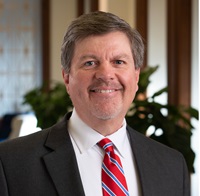
Carl White is the senior vice president of the Supervision, Credit, Community Development and Learning Innovation division at the Federal Reserve Bank of St. Louis. White has more than 35 years of experience in the Supervision Division of the Federal Reserve Bank of St. Louis. He is currently senior vice president of the Supervision, Credit and Learning Innovation Division. He has served in various other roles within Safety and Soundness, beginning his career as an examiner. Mr. White has served as lead instructor and course developer on numerous Fed System training courses, including an international assignment in Brazil. In addition, he served as the central point of contact for the District’s largest state member bank before and during the financial crisis. He and his team were nominated for the District’s President’s Award for Innovation as a result of efforts to implement and enhance off-site loan review and examination processes. Mr. White holds a bachelor’s degree with a major in finance from St. Louis University.
 Tong Yu is an Assistant Professor of Finance at Tsinghua University School of Economics and Management (Tsinghua SEM). His research focuses on Financial Intermediation and Fintech, with an emphasis on their economic impact on firms, entrepreneurs, households, and financial institutions. These topics intersect with multiple fields, including corporate finance, entrepreneurial finance, household finance, and banking. He is also interested in issues related to regulation of financial intermediaries. He received his PhD in Finance from Imperial College London. While pursuing his PhD, he worked for two years at UK's Financial Conduct Authority.
Tong Yu is an Assistant Professor of Finance at Tsinghua University School of Economics and Management (Tsinghua SEM). His research focuses on Financial Intermediation and Fintech, with an emphasis on their economic impact on firms, entrepreneurs, households, and financial institutions. These topics intersect with multiple fields, including corporate finance, entrepreneurial finance, household finance, and banking. He is also interested in issues related to regulation of financial intermediaries. He received his PhD in Finance from Imperial College London. While pursuing his PhD, he worked for two years at UK's Financial Conduct Authority.
Video Gallery





























